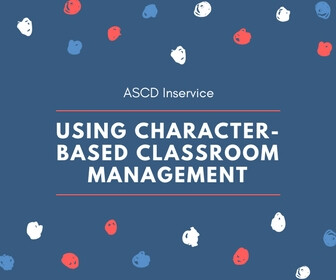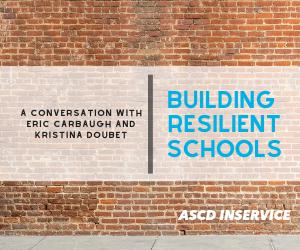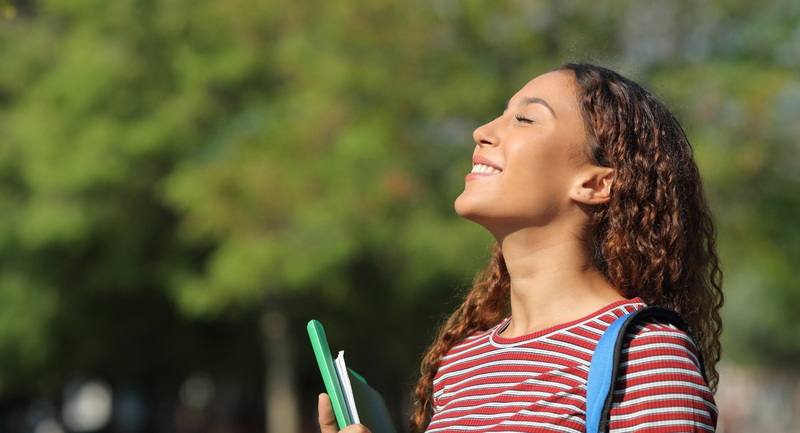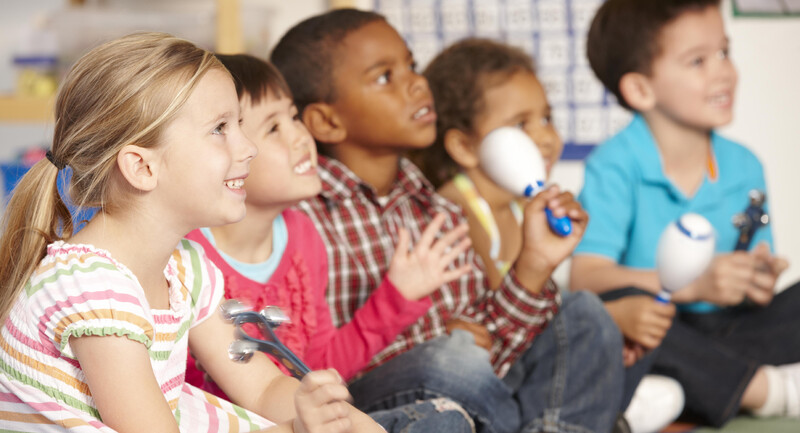As a first-year teacher almost 20 years ago, I was often hard on myself. When a lesson or interaction didn’t go well, I would be self-critical and forget about the joy of teaching that brought me there in the first place. It almost drove me to quit mid-year.
Looking back, I wish I had replaced that self-judgment with curiosity. Curiosity has so many benefits that counteract self-judgement—it invites us to question, examine, explore. It’s associated with higher levels of positive emotions, lower levels of anxiety, and greater psychological well-being. Neuroscience reveals that when we are curious and try new things, we are rewarded with a rush of dopamine, the feel-good chemical, in the brain. Curiosity also helps strengthen relationships: our curiosity to understand others helps us to apply empathy and build trust, which are great skills to have as educators. And curiosity is needed now more than ever: the World Economic Forum’s 2023 Future of Jobs Report ranks “curiosity and lifelong learning” among the top five skills employers around the globe are looking for in workers.
There are three powerful ways you can cultivate curiosity now in your life: with your students, in your teaching practice, and most importantly, within yourself.
Getting Curious About Your Students
One of my favorite things about being a teacher was the chance to build individual relationships with students and support their own personal growth. It takes some extra effort, but it’s worth it. Two former students, Joshua and Kamilah, taught me this.
Which of your students do you feel may need your extra attention or support? Your attention and care as a teacher could mean so much to them.
Joshua was a precocious 9th grader in my English class who was a diligent student and very quiet in class. It was only through taking the time to talk to him outside of class and showing curiosity about his interests that I learned he loved to write poetry—and was good at it. After our initial conversation, I would check in with him and ask if he was writing any new poetry and encourage him to keep writing. One day he told me he had received an honorable mention for a poem he submitted for a districtwide poetry competition and invited me to join him at the ceremony. I was thrilled to go and to get the chance to meet his family at the event. Those small moments outside of class time cultivated our relationship, and I’m so grateful I took the time for them.
Kamilah, one of my 6th graders from my first year of teaching, was not quiet in class. In fact, she often led her peers in terms of class disruptions. However, nearly every day at lunchtime, she came to my classroom to eat her lunch with me instead of joining her classmates in the cafeteria. She showed a different side of herself outside of class time: she was kind, funny, inquisitive—qualities I didn’t always get the chance to see during class. I was curious: why would the same student who seemed determined to interrupt my lessons want to spend lunchtime with me? When I asked her about her behavior in class, she told me she had always played the role of “class clown” in school and felt like she had to keep playing it. I realized that perhaps she joined me for lunch as a break from this role, where she could just be herself, and that she appreciated a teacher seeing her not just as the “class clown”, but for who she truly was. Throughout the year, over lunch, we got to know each other, and I hope this helped her feel more empowered to be herself with her peers outside of lunchtime as well.
Which of your students do you feel may need your extra attention or support? Can you find some time—no matter how small—to get to know them a little better and help them feel seen and valued? Your attention and care as a teacher could mean so much to them.
Applying Curiosity in Your Teaching Practice
One of the ways I judged myself too harshly my first year of teaching was around my classroom management skills. I later realized every beginning teacher struggles with this. In the moment, though, I unfairly compared myself to a veteran colleague who ran her classroom of 12-year-olds like a tight ship and had a management system for everything. Desperate for a solution, I tried to apply her system to my classroom. It was a disaster. My students could tell I was in over my head in that strange way that kids can decipher everything.
Instead of judging or comparing ourselves, we can get curious about our unique strengths and interests and lead our teaching with that.
So, after trying and failing at someone else’s approach, I asked myself, What would work for me? What am I good at? What do I enjoy doing? I realized that another way of addressing classroom management was to make my teaching engaging and ensure that students felt challenged and motivated in my class. I’m good at engaging students through my own enthusiasm as well as through creative projects. I used these skills to incorporate events like poetry slams, raps about books, and projects that encouraged students’ imagination and humor. It began to pay off: Students spent more time learning and enjoyed the experience, and as a result, more learning, joy, and laughter took place.
So much of teaching is simply knowing yourself well: who you are, what your strengths are, what you enjoy doing. Then lean into that and share it with your students. None of us is perfect, so instead of judging or comparing ourselves, we can get curious about our unique strengths and interests and lead our teaching with that.
Curiosity for Your Own Well-Being
Finally, we also owe ourselves the space and freedom to discover and explore what we are curious about—not just for our profession, but for ourselves. Research shows that exploring our interests through hobbies makes us more likely to have lower stress levels, a lower heart rate, and a better mood.
On many weekends when I was teaching in California, I would hop in my car before sunrise and head to some breathtaking coastal town to compete in a 5K or 10K race, then check out the town before heading home. As a lifelong runner and college athlete, it was important to me to maintain my love of running, even during stressful times of the school year. These weekend adventures reminded me that I had many interests and, I believe, made me a better teacher because I was making time for those interests.
Curiosity is not just powerful for learning in the classroom—it’s important for our well-being, our teaching practice, and our relationships with students.
It's also enriching to share your passions with your students. I am a former ballet dancer, and when I was teaching high school, I started an after-school dance club. I taught my students ballet, and they in turn taught me hip-hop, and we created a dance show for the school that combined the two genres into a creative ensemble. Later in the school year, one of my dance club students asked me to write her a letter of recommendation for college, and I was thrilled to have the opportunity to support her.
What are some of your passions and interests? How can you be sure to make time for them, even when stress is high? And how can you share those interests with your students, however informally, to inspire and empower them?
Curiosity is not just powerful for learning in the classroom—it’s important for our well-being, our teaching practice, and our relationships with students. Give yourself the time and space this year to nurture your curiosity for greater learning, growth, and joy.
Mary Kingston Roche is the founder of Live Curious LLC, dedicated to helping people cultivate their curiosity for deeper learning, greater well-being, and impact. In this role she offers workshops, coaching, online courses, and speaking. She is also a TEDx speaker, a former teacher and school board member, and an education and policy leader with nearly 20 years of experience working at all levels of policy change.





